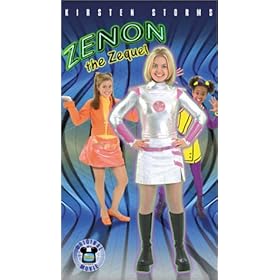ScreenACT Project Pod
ScreenAct Vision
ScreenACT offers support with the general aim of helping to develop the local screen industry, thereby enhancing the ACT production industry’s capabilities and employment opportunities.
Project Pod Aim
Project Pod is a professional and project development opportunity that aims to build capability in screen project development, increase networks, and support a group of targeted projects through to a market-‐ready stage.
The program has four main phases, which start with broad learning goals, then narrow down, focussing on key teams to help them refine their projects to the point that they are ready to take to market. As part of this, several top projects will receive extra funding.
Guiding Principles Screen
ACT supports:
- the film, video production, TV and digital media industries.
- projects that are intended to result in commercial or business focused outcomes.
- applicants who have started their careers and can demonstrate professional experience.
ScreenACT will give preference to:
- participants who show a commitment to the six-‐month process.
- projects intended for production and post production in the ACT and Capital Region.
- applications that are professional in their presentation, thought and execution.
GENERAL GUIDELINES
About ScreenAct Project Pod
The ScreenACT Project Pod is a six-‐month program that is open to all professional screen practitioners (individuals and teams) in the ACT/Capital Region. It consists of four phases:
- Phase One – Two workshops
- Phase Two – One-‐on-‐one project development
- Phase Three – Industry Feedback and future project plans
- Phase Four – ScreenACT Grants allocated to as many as four selected projects Selection for the Project Pod is competitive.
Phase One will include up to 24 participants. Phases Two through Four will have up to ten participants.
Project Pod will be led by a number of different providers, and tailored to the needs of the individual participants based on their project’s format and genre.
- Phase One will be delivered by Stephen Cleary, who is an international script consultant and developer, and by ScreenACT
- Phases Two and Three to be delivered by local developers with oversight and input from Stephen Cleary and
ScreenACT.- Phase Four delivered by ScreenACT.
All participants for all phases to be selected by an industry panel, with ScreenACT acting as secretariat, and with the sign-‐off of the CEO of Canberra Business Council on final participants and funding.
Phase One costs participants $600 for the two workshops. The first workshop is over four days, and the second over two. Phases Two through Four have no participation cost.
The program covers narrative and story, introduction to development practice, pitching and presentation skills, introduction to producing, networking with industry professionals and Screen Australia representatives, and one-‐on-‐one professional development assistance on a project basis.
Project Pod projects can come from film, television or digital media industries. ScreenACT will consider projects that include but are not limited to:
- Feature films, television drama series, mini-‐series, telemovies, broadcast length documentary, television documentary series, reality TV series and digital media projects.
- ScreenACT will NOT consider the development or production of TV commercials, corporate videos, or training videos
PLEASE NOTE: As this is the pilot ScreenACT Project Pod, ScreenACT reserves the rights to make changes to the project as deemed necessary. ...
Eligibility Criteria
Applicants must be residents of the ACT or Capital Region (as shown on the map on ScreenACT’s website: http://www.screenact.com.au/content.php?id=8)
Applicants must have started their careers and be able to demonstrate some degree of professional experience.
Applicants must be Australian citizens or permanent residents of Australia, and be 18 years old or older.
Applicants can be individuals or up to a team of two. The team leader must attend all sessions. The second team member is expected to attend all sessions, however there is some flexibility on this issue.
Applicants must be the producer, director, and/or writer of the project. Applicants must also be the copyright holder, or have an option to the rights in any and all works on which the project is based. The charge for phase one is per person regardless of individual or team status....
Key Dates
ITEM DATE Applications open Friday, 19th March, 2010 Applications close Monday 29th March, 2010 – 10.00am Phase One successful applications announced Thursday 1st April, 2010 Phase One: First Project Pod Workshop (4 days) Friday 23rd – Monday 26th April, 2010 Phase One: Second Project Pod Workshop (2 days) Saturday 1st – Sunday 2nd May, 2010 Revised treatment due Friday 14th May, 2010 – 5.00pm Phase Two successful applications announced Friday, 28th May, 2010 Phase Three Workshop (1 day) Saturday, 19th June, 2010 Delivery of agreed project deliverables Friday 1st October, 2010 – 5.00pm Phase Four Workshop (3 days) Friday 22nd – Sunday 24th October, 2010 ...
Assessment Criteria
In assessing applications, the ScreenACT Assessment Committee will mark applications against the following criteria:
- Qualification under the general guidelines and guiding principles
- Originality and strength of concept
- Commercial viability of the project
- The strength of the creative team
- Commitment to the entire process
- Likelihood of the project proceeding into production
...
From: Project Pod: Application Form and Guidelines, ScreenACT, 19 March 2010
Labels: Canberra, digital audio, Digital Culture, digital TV, digital video, film, podcasting, Screen Australia, ScreenACT





